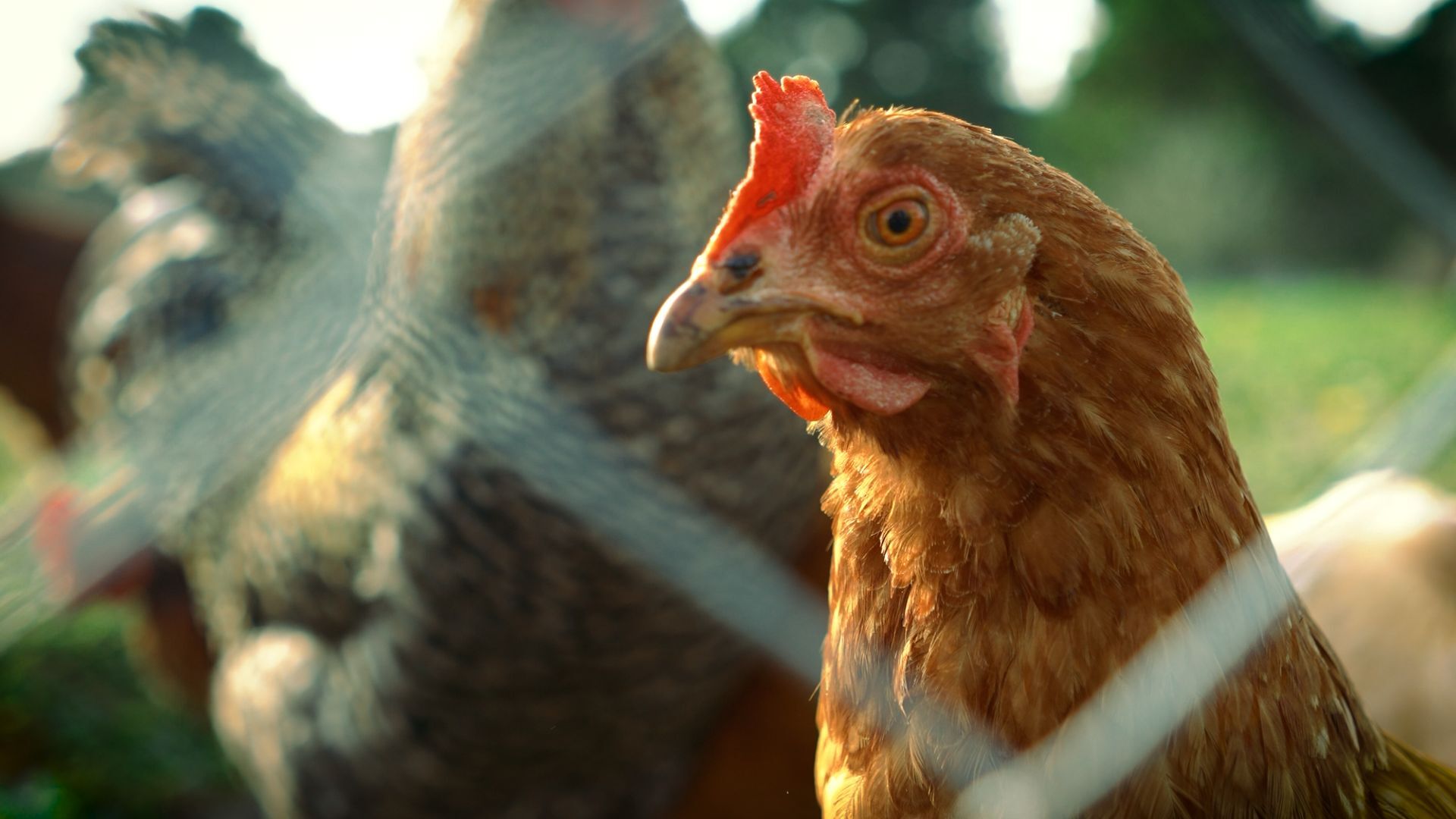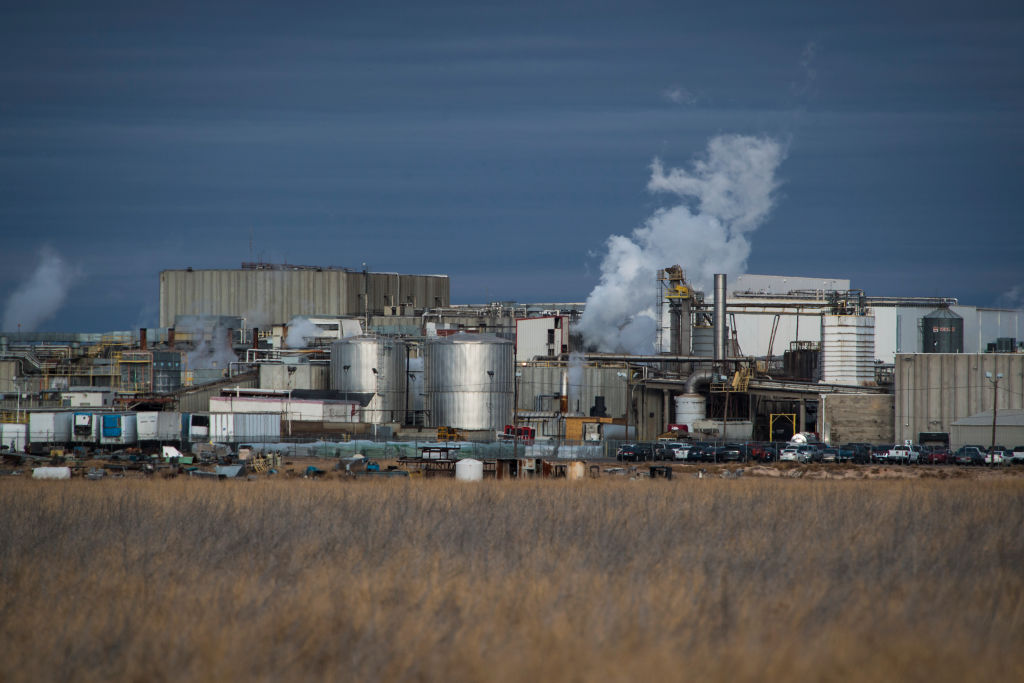
[Lauren Taylor]
THE BIDEN ADMINISTRATION’S PLAN TO RESHAPE AMERICA’S MEATPACKING INDUSTRY IS FACING SERIOUS SETBACKS, AS ONE HIGH-PROFILE PROJECT COLLAPSES, LEAVING MORE THAN A MILLION CHICKENS CULLED AND RAISING CONCERNS ABOUT THE EFFECTIVENESS OF GOVERNMENT INTERVENTION.
IN NORTHERN IOWA, 1-POINT-3 MILLION CHICKENS WERE RECENTLY EUTHANIZED AFTER THE COMPANY THAT OWNED THEM, PURE PRAIRIE POULTRY, DECLARED BANKRUPTCY. THE WALL STREET JOURNAL REPORTS THE COMPANY… WHICH RECEIVED 46-MILLION IN FEDERAL LOANS AND GRANTS, COULDN’T AFFORD TO FEED THE BIRDS… RESULTING IN THE DECISION TO CULL THEM.
PURE PRAIRIE WAS PART OF A LARGER EFFORT BY THE BIDEN ADMINISTRATION TO BREAK UP THE DOMINANCE OF THE NATION’S LARGEST MEATPACKERS LIKE TYSON FOODS, J-B-S, AND CARGILL.
IN 2021, THE U-S-D-A ALLOCATED HUNDREDS OF MILLIONS OF DOLLARS IN GRANTS AND LOAN GUARANTEES, HOPING TO GIVE SMALLER, INDEPENDENT PROCESSORS A CHANCE TO THRIVE AND AVOID SUPPLY DISRUPTIONS LIKE THOSE SEEN DURING THE PANDEMIC. THE IDEA BEHIND THIS INITIATIVE IS TO LOWER FOOD PRICES BY INCREASING COMPETITION IN THE INDUSTRY WITH MORE RESOURCES FOR SMALL BUSINESSES TO BE CREATED AND MAINTAINED.
BUT THREE YEARS LATER… THE RESULTS ARE FAR FROM WHAT WAS PROMISED. THE JOURNAL FOUND MANY OF THE COMPANIES THAT RECEIVED FUNDING HAVE YET TO BREAK GROUND ON NEW FACILITIES… AND THE ONES THAT HAVE STARTED OPERATIONS AREN’T MAKING A NOTICEABLE DENT IN THE MARKET SHARE OF THE BIG PLAYERS.
AGRICULTURE SECRETARY TOM VILSACK HAS DEFENDED THE INITIATIVE, SAYING THAT IT’S TOO EARLY TO JUDGE ITS SUCCESS. BUT CRITICS ARGUE THE FAILURES ARE ALREADY APPARENT.
Darin Von Ruden. Wisconsin Farmers Union
“It’s very unfortunate that it happened, but it shouldn’t happen. There should be some more guidance, or at least a process that would allow the processors or the farmers to make sure that animals are taken care of for the purpose that they’re being raised for.…
The discussions between the Department of Agriculture in the three states are ongoing. There’s always that worry by the next chicken farm or the next turkey farmer that what happens if it’s my processor next?”
SO, WHY ARE THESE PROJECTS FAILING?
THE MEATPACKING INDUSTRY IS AN INCREDIBLY DIFFICULT SPACE TO DISRUPT… WITH HIGH STARTUP COSTS, SUPPLY CHAIN HURDLES, AND NEARLY IMPOSSIBLE COMPETITION FROM ESTABLISHED GIANTS.
SOME INDUSTRY ANALYSTS ARGUE THE GOVERNMENT’S BROAD APPROACH, WITH MANY SMALL GRANTS, SPREAD THE FUNDING TOO THIN. INSTEAD… FEWER, LARGER GRANTS COULD HAVE GIVEN SOME PROJECTS A BETTER CHANCE TO SUCCEED.
WHILE SOME ARE HOPEFUL THESE SMALLER PROCESSORS CAN EVENTUALLY TAKE OFF, THE INDUSTRY’S HEAVYWEIGHTS ARE UNLIKELY TO BE DETHRONED ANYTIME SOON. AND WITH GOVERNMENT DOLLARS ON THE LINE, QUESTIONS ABOUT OVERSIGHT AND ACCOUNTABILITY ARE ONLY GROWING.
FOR STRAIGHT ARROW NEWS… I’M LAUREN TAYLOR.
FOR MORE UNBIASED UPDATES AND STRAIGHT FACTS… DOWNLOAD THE STRAIGHT ARROW NEWS APP OR VISIT SAN DOT COM.












